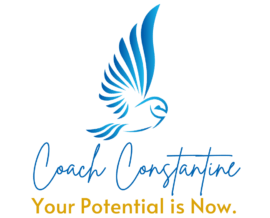Should and must thinking is getting worse and worse online. After a short hiatus, I returned to blogging and Medium (for those who don’t know it, Medium is a blogging site with articles spanning every conceivable topic). So, I returned a few years later only to find the so-called “blogosphere” filled with articles on how you should or shouldn’t do things because someone tried them, and it didn’t work out for them. Or how you should use system A instead of B, app A instead of B, or do X to feel Y, or what not to do to feel that way. Just do a Medium search with the key phrase “You should” and you’ll get an impressive list of articles.

Don’t get me wrong. Many of these articles are informative; I subscribe to them, like them, and I’ve learned a great deal from them. So my current post is not opposed to the existence of such articles. Nor do I question their value – I can discern the witty intention underneath. What I do question, though, is the reader’s perception of them.
Let’s look at the whole “should” and “must” thinking from a life coaching perspective. Life coaching takes the exact opposite approach when it comes to “shoulds.” Not only are life coaches not supposed to give advice, but we also often work with clients to help them get rid of all those musts and shoulds. Musturbation is what the famed psychologist Albert Ellis called this “demandingness about the self, others, or the world”.
From my experience, there are a lot of shoulds and musts coming from people in their 20s and early 30s, many of whom are IT enthusiasts like me! And I’ll be honest: I used to be one of them!
Part of my shoulding can be explained: When I was 18 years old, I began listening to classical music. Unlike pop music, you can’t just listen to one recording; each work has countless performances, and interpretations can vary dramatically (check out the tempo difference in the first few seconds here and here – yes, it’s the same symphony, recorded the same year, by different orchestras and conductors!). Naturally, I had to revert to classical music guides that compare the various recordings and list the best ones! At the same time, I developed an interest in cinema. I would read at least five different international magazines where reviewers would pick the best movies, complete with star ratings and films of the month.
Did I regret allowing myself to be influenced by all these critics? Not at all! You see, these publications never told me that I should listen to this recording or watch that movie. Yes, they would choose the best of the bunch, but there was still plenty of leeway, and fortunately, subjectivity is encouraged greatly in art. And on the positive side, this inspired me to pursue a hobby as a classical music and film reviewer (which in turn led me to my online magazine, The High Arts Review).
However, in my thirties, I was almost drawn back to my shoulding all over me as I became fascinated with wellness articles that told you how to live your life. 10 things to make you feel happy, excited, and blissful, or 10 things you must avoid- that sort of thing. Did I follow the advice? Let me just say I was very selective.
Then, in my forties, I discovered life coaching, read the works of Albert Ellis, did NLP training… and everything changed. The difference now is that I keep reading the same “should” and “must” articles, but I can acknowledge the writer’s tongue-in-cheek approach. I guess what I’m trying to say is that most of the time (hopefully), the authors of these articles don’t literally mean that you have to do exactly what they’re saying. It’s not that they want to impose their opinion on you – their “shoulds” are often tinged with sarcasm, and after all, using strong vocabulary is just an effective publishing strategy. Everyone knows that, right? Well, knowing is one thing, and feeling is another…
For the time being, let’s assume the author’s intentions are good. But the big question is, how do you, the reader, feel after reading such articles? Do you allow them to introduce you to new possibilities, or do you let them make a decision for you? In other words, who do you trust to make decisions? And what’s an alternative approach?
You could start by replacing “should” with “I could try.” By using the pronoun “I,” you remind yourself that you are in charge of your decisions. This also gives you more freedom to decide whether you want to follow the advice, try it out first, or completely disregard it.
You might also consider asking yourself, “How is this going to help me and others around me?” Because let’s not forget that we are social beings whose decisions frequently affect our environment.
Also, let us bear in mind that when people try to give advice, all the shoulds and musts can often have the opposite effect – after all, who likes being told what to do? Advice and recommendations are more easily communicated when you are given a choice. A case in point: notice how I began the last two paragraphs above to get a sense of subtle non-intrusive suggestions.
So, while I’m still an avid reader of the “you should” and “must” lists (I find their directness immediately catchy), I’d like to ask if readers and writers could replace all the shoulds with more open, inviting, and empowering vocabulary.
Readers will engage more if they know they have a choice, and writers will promote a more ethical space. In the end, it’s a win-win situation.

